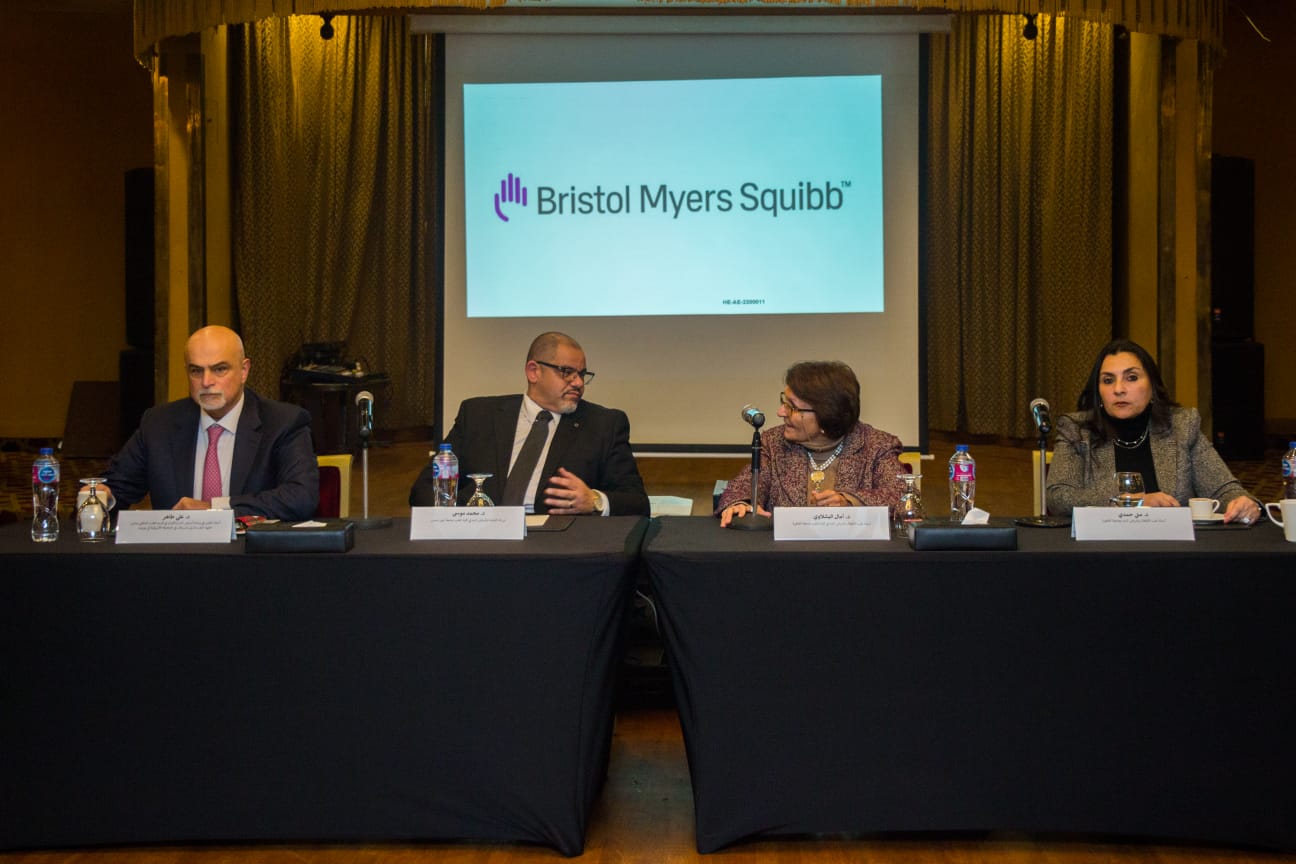Bristol Myers Squibb (BMS), the leading global pharmaceutical company, announced today the commercialization of its first-in-class therapy (or prescription medicine) indicated for the treatment of adult patients with transfusion-dependent anemia associated with beta thalassemia.
Thalassemia is an inherited blood disorder, characterized by the production of an abnormal form of hemoglobin, the protein within red blood cells that the body needs to carry oxygen. The disorder leads to anemia and other serious symptoms, such as bone abnormalities and growth deficiencies. Patients living with thalassemia are often required to receive lifelong red blood cell transfusions to support normal growth and development, maintain quality of life and increase life expectancy.
According to the Thalassaemia International Federation (TIF), around 56,000 infants are born annually with thalassemia. In Egypt, it has been estimated that one thousand children out of 1.5 million live births are born each year suffering from the disease . It is also reported that the carrier rate in Egypt is between 9 to 10% of the population , and with around 10,000 patients of all ages receiving treatment.
Prof. Mona Hamdy, Professor of Pediatrics at Cairo University said: “Over the past few years, the Egyptian Government spared no effort to increase understanding of the need to identify the thalassemia carrier population and enhance the disease care and management. Thanks to the guidance of our leadership, Egypt has become one of the first countries in the region to receive a life-changing medicine to treat patients with hemoglobin disorders. The collaboration between the Ministry of Health and Population (MoHP), the local healthcare authorities including the Egyptian Drug Authority (EDA) and the Egyptian Authority for Unified Procurement (UPA), and leading biopharmaceutical companies such as Bristol Myers Squibb, plays a key role in our efforts to build a robust healthcare sector and ensure Egyptians have uninterrupted access to innovative medicines.”
Oscar Delgado, General Manager, Bristol Myers Squibb Middle East and Africa said: “We are very committed to our mission to discover, develop and deliver innovative medicines that help patients prevail over serious diseases, and we strive to make these treatments available to patients in Egypt. The commercialization of our first-in-class therapy is an important milestone that is bringing new hope into the hands of patients and their families. It’s the first medication in 96 years that targets the underlying cause of beta thalassemia in Egypt. To date, the country is only able to treat patients with a bone marrow transplant, which is only viable for a small portion of patients.”
Commenting on the healthcare sector, Delgado added: “We have witnessed the rapid transformation of the healthcare sector in Egypt, which was accelerated by the pandemic and brought a series of important reforms. These changes allowed the country to reinforce its healthcare sector and move towards universal health coverage, one of their priority goals under Vision 2030. As one of the most populous countries in the Arab world, Egypt is a country of focus for BMS where we have a strong heritage. We will continue to work hand-in-hand with the government and our local partners to support the healthcare system and improve patients’ lives in Egypt.”
The new treatment from BMS was launched at the occasion of a press conference attended by prominent local and global hematology experts including Prof. Amal Elbeshlawy, Professor of Pediatric Hematology at Cairo University Hospital, Prof. Ali Taher, Professor of Medicine at the Division of Hematology & Oncology Department of Internal Medicine and the Director of the Naef K. Basile Cancer Institute (NKBCI) at the American University of Beirut Medical Center, Prof. Mohamed Moussa, Professor of Internal Medicine and Hematology, Ain Shams University, Prof. Mona Hamdy, Professor of Pediatrics, Cairo University, and regional senior executives from BMS including Oscar Delgado, General Manager MEA.
Talking on the burden of thalassemia, Prof. Amal Elbeshlawy commented: “The high prevalence of the disease has led to a significant burden on the healthcare system and affected Egyptians. The disease can cause severe anemia, fatigue, and other health complications leading to a reduced quality of life and increased mortality rates, particularly in cases where the disease is not properly managed. The cost of treatment and care for these people can also weigh heavily on affected families, especially those from low-income backgrounds.”
Regarding the plans and procedures from the government to raise awareness, Prof. Amal added: “The Egyptian government has recognized the urgent need to improve care for patients with thalassemia and other genetic diseases. It has implemented various measures to address the issue and is providing free or subsidized treatment. However, there are still challenges, such as inadequate awareness and limited access to specialized healthcare services in certain regions.”
Prof. Mohamed Moussa reflected on the current available treatment in Egypt and said: “Currently in Egypt, the standard treatment for thalassemia is regular blood transfusions which can lead to iron overload. To prevent this, patients also receive chelation therapy to remove excess iron from the body. While this treatment has been effective in managing the disease, it can still lead to complications and side effects and constitute a burden for families.”
Prof. Ali Taher highlighted his global experience and discussed novel therapies: “Over the past few years, there has been a great deal of progress in the development of novel treatments for thalassemia, including gene therapy and gene editing. We have also made great strides in the development of new treatments that can help manage the complications of thalassemia. My experience in treating patients with the disease over the past years has taught me the importance of a comprehensive multidisciplinary approach that includes not only medical treatment, but also psychological and social support for patients and their families.”
To date, BMS treatment for adult patients affected by transfusion dependent anemia associated with beta thalassemia is available in key markets in the Middle East including Saudi Arabia, the UAE, Kuwait, Oman. BMS is planning to commercialize it soon in other regional markets.
BMS is reputed for having one of the most promising pipelines in the industry. During the press conference, BMS also highlighted that it has ambition to continuously increase its footprint in Egypt through local partnerships and several programmes.



